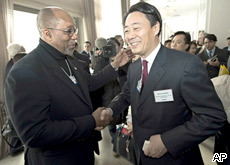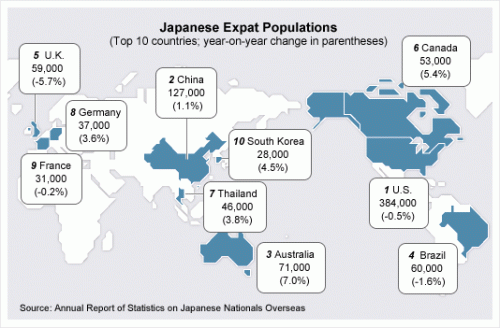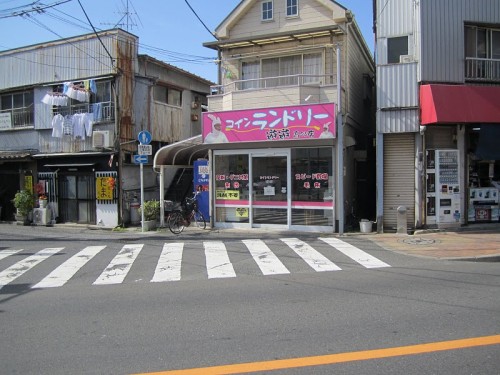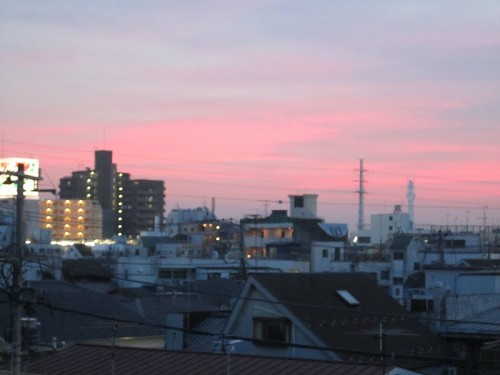It is still very early into this tragedy, and a lot could change in the coming days/weeks/months. But I wanted to give some initial impressions. I have been going to the office as usual and basically heading directly home to keep updated and try and calm down my mother via Google Talk. Here are some of my observations so far based on my experiences and the reports I have been reading and watching in English and Japanese. To save time, I have not included links to some stories I did not feel like digging up:
- Japan rocks – The reaction to the earthquake has been impressive, though sadly even the best response is unequal to adequately deal with the massive destruction in northeast Japan. The buildings were strong enough to stay standing through the quake, the streets were safe enough to walk home when no trains ran, and a full court press came to the rescue the next day. As far as planning and citizen preparedness goes, Japan has the whole world beat, hands down. It seems like in many ways the authorities learned from the failings of the Kobe earthquake. I feel very proud of my adopted home. Note that the emperor agrees with me. In his recent national address, he noted with admiration that foreign observers praised the Japanese people for their calm, helpful reaction to the quake.
Unfortunately, even the best plans cannot protect against one of the biggest earthquakes/tsunamis ever known. The damage is immense, and it will take a long time to recover. But I am confident that Japan has what it takes to get through the disaster and emerge as strong as ever.
As the days unfold, I notice that one advantage Japan seems to have on its side is a very adversarial media. From the outset, I think the Kan administration has done its best given the circumstances, and I don’t really agree with the assessment of some media outlets that it was too slow to set up shop inside Tepco. However, on top of that the mainstream media covering this story have (admirably) shown very little deference to the prime minister and Tepco. I think this has put the fear of God into these officials to disclose as much information as possible and be as cooperative as possible. Also, the US (among other countries) is offering very generous support and has been among the most supportive governments in backing up Japan’s response. It has issued statements saying they are “in agreement” with the Japanese assessment of the nuclear situation. Betraying US confidence at this point would not go down well. With all that pressure, attempting to hide things could easily turn Tepco into the next BP (and then some) and the Kan administration into the villain that Murayama is remembered as being during the 1995 Kobe earthquake.
Twitter has also been a big positive, in my opinion. It helps average people exchange trusted information (and lies to a much lesser extent), and there is a kind of wisdom-of-crowds quality in which certain proposals are retweeted by enough alpha-users that they grab the attention of the authorities. For instance, I saw some prominent Japanese Twitterers retweet a request to have sign language interpreters at press conferences, and a day later sure enough there they were. On the other end of the spectrum, there have been some chain letters spreading untrue rumors. I received one about “poison rain” due to the Chiba oil tanker fire, and I have heard about others. It is worth noting that the person who sent that one emailed me after she learned it was false. - Supply shortages in Tokyo should be resolved soon – At this point, it is hard to tell what is more to blame for the empty shelves – the hoarders or the reduced shipments? All the same, manufacturers are reporting sufficient capacity to supply the area, and any disruptions in deliveries should be relieved by next week’s release of emergency oil reserves. The reserves should alleviate the supply shortages and give time for availability even in Tokyo to get back to normal as early as next week. One big reason for the delay is that the worst affected regions got priority, which is only natural.
Unfortunately, this is one area where average people and the government were kind of a letdown. For one thing, people seemed to start panic buying very quickly. I took a trip to Tochigi on Sunday and already the gas station lines were long. At the same time, the government only started telling people to stop panic buying today! The media seemed to be doing its job, noting the activity and noting how problematic it was, at least as far as I read. - People are overreacting to the nuclear crisis, big time – The risk of radiation is, by all credible accounts, very small for almost everyone in the country. I am as glued to updates as anyone, but I am not panicking. In fact, I think focusing too much on the nuclear crisis runs the risk of de-emphasizing the massive toll the tsunami took on the region. The French chartering flights to evacuate expats and warnings based on nuclear fears are overdoing it, I think. I mean, I would understand some people without a deep connection to the country leaving, or at least moving or sending loved ones to stay somewhere safer. I have my wife and in-laws in the area, so I don’t want to leave unless it is truly necessary. In addition to the nuclear concerns, there are the transit problems and hoarding/logistics problems with daily necessities, not to mention the risk of aftershocks. This is scary for everyone, but people who don’t know the language or don’t have people to rely on have that added layer of difficulty. And if you can’t follow the mainstream Japanese media (and sensible Internet sources like Mutant Frog!), you are liable to read sensationalized reports from the overseas media.
This last bit is a sore point for me. Thanks to all the scary US media reports, my mother has been absolutely terrified. My relatives and family friends have been calling her nonstop to know if I’m OK. I know the media are in the misery business, but more than that it seems like the reporters are far too detached from the story. They focus so much on broader implications and potential scenarios that it ends up providing no practical information to people who actually want to have an even-handed idea of what’s going on. - The aftershocks are really scary – since the big earthquake it almost feels like there are small rumblings going on constantly. I especially feel this way at the office, where the building’s design makes it kind of easy to feel small tremors. The bigger ones fill me with dread. As they happen, I wonder if this one will build up slowly into a big quake like the one on Friday. Even when there are no quakes, for some reason I feel like the ground is shaking when I am walking down long hallways.
- Many outside observers have failed a very easy test of decency – When reacting to a tragic event, the rules of etiquette are simple. Express sympathy for the victims and note the tragedy of the affair. This is not the time to make dumb jokes, call a natural disaster retribution for something some people from Japan did that you don’t like, or condescendingly generalize about Japanese culture. Too many people have failed miserably in this regard. If you need to react this way, keep it off the Internet at least!
- I am a terrible investor – Last and most definitely least, what do you think is the only individual stock I own? Some hints: In the two months since I bought in, it has seen much of its generating capacity wiped out forever and been threatened with government-enforced annihilation for mishandling the disaster response. Oh and it has been limit-down for three days straight.




